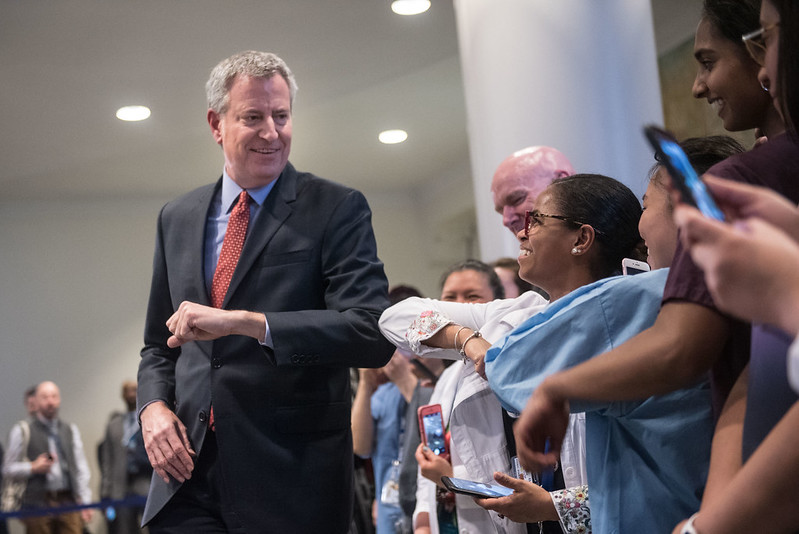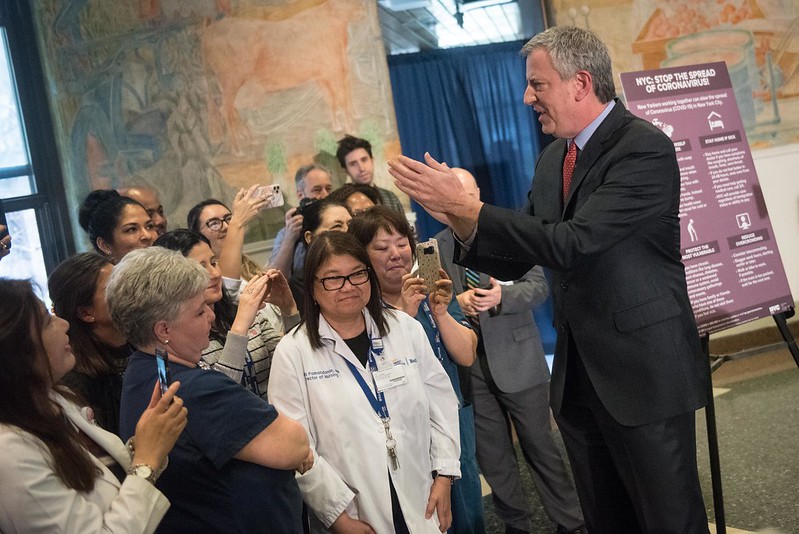The number of confirmed coronavirus cases in New York City jumped from 20 to 36 since Monday, Mayor Bill de Blasio said Tuesday, and the city now working to prepare for additional patients who become sick after contracting COVID-19, the illness caused by the virus.
“We are obviously more concerned when we see more cases but there’s a piece of this that is actually good news and that is that testing capacity is coming more online,” said de Blasio during a press conference at Bellevue Hospital. The mayor then blamed the federal government for delaying the roll-out of automated testing in the city.
The mayor added that there are 30 New Yorkers in mandatory quarantine, 1,980 in self-quarantine, 195 pending tests and 258 negative tests for the virus, in his most recent update on the virus on March 10.

But private hospitals that started testing for the virus on Friday are starting to “really amp up,” said the mayor, and are being inundated with test results. Hospitals are receiving so many results so rapidly, de Blasio said, that it has prevented the city from compiling detailed case breakdowns of those who have tested positively and negatively for the virus.
Now that the hospitals are in testing overdrive, New Yorkers will soon see a “very different trajectory” in terms of the information on those who contract the virus, said the mayor.
CEO of NYC Health + Hospitals Dr. Mitchell Katz, also present at the press conference, said that city hospitals and the Health + Hospitals 60 outpatient sites are preparing for a flood of patients.
Although 80% of people who contract the coronavirus show minimal or no symptoms, 20% will probably need health care services, and 5% will need intensive services like a breathing tube or ventilator machine, said Katz.
Katz said even though New York City hospitals are notoriously overcrowded, they are prepared to take on an emergency influx of patients.
“You change how you operate, you don’t continue to operate in the same standard,” said Katz. If hospitals were to suddenly get huge amounts of patients in “respiratory distress” they would rapidly discharge patients currently in the hospital that could be safely cared for at home. Hospitals would also cancel all elective surgeries in order to free up staff and space.



































